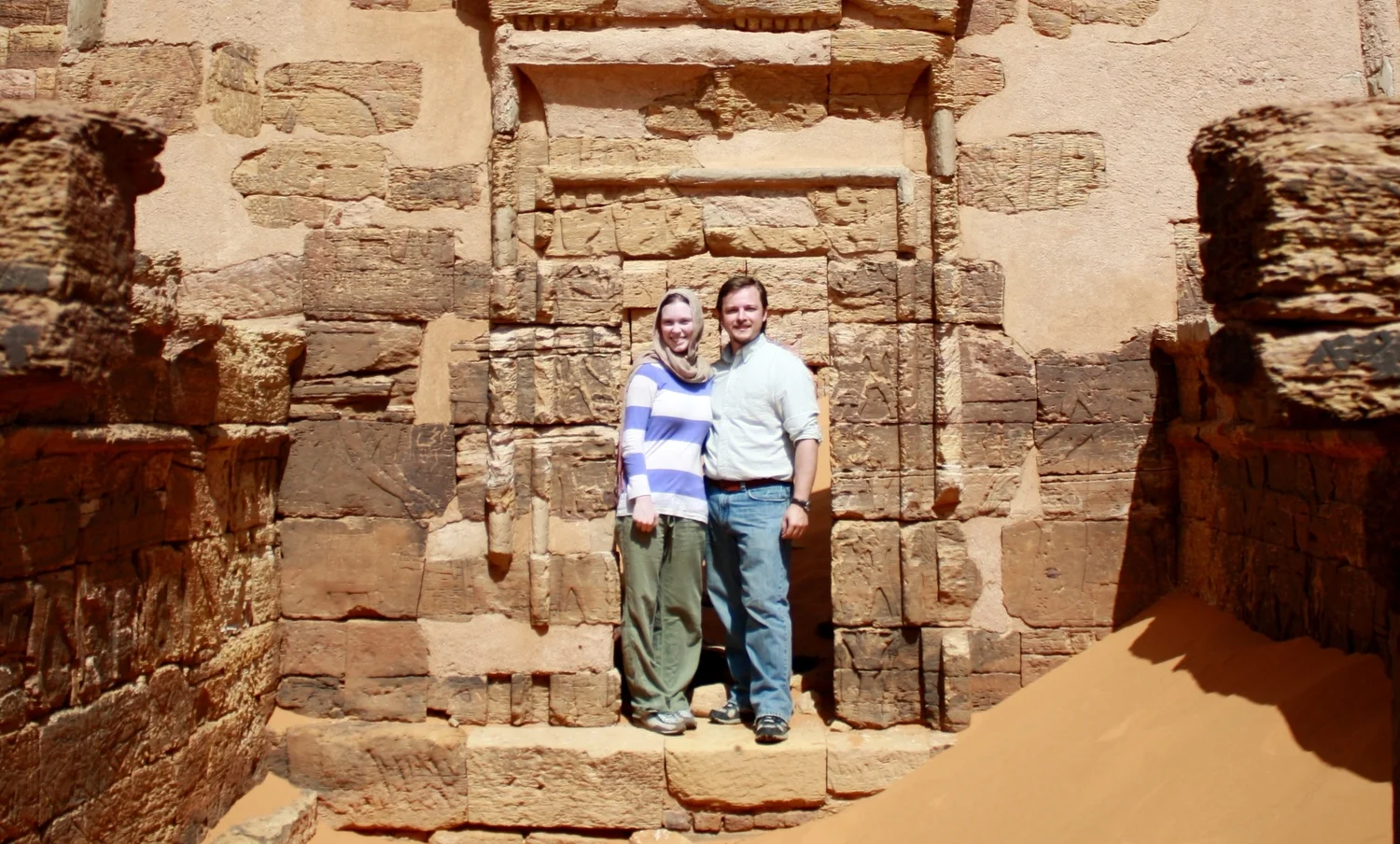Beauty has a strange way of crashing in on us.
Every morning I get up in the predawn dark, greeted by the songbirds that populate our trees. But before I can stop to drink it in we leave that idyllic setting to brave the automotive chaos of urban traffic. These roads are less like blacktop pathways and more like storm-struck beaches beneath the collision and clash of metallic waves advancing against each other. Gone are the sweet songs of firefinches and mourning doves, now only the warbled horns blaring and chirping expletives.
And then, over the crunch and the crowd, the shadowed sky begins to break. Far on the horizon light begins to transform the city. The dark is peeled back like an orange rind and the dawn proclaims life and light for a new day.
A Girl from the Dunes
A few weeks ago, Jérémie invited me to come and preach. When he was in Bible school we began a children’s club together. Under the setting sky we would converge on a roofless discotheque, trailed by children from across the maze of homes rising out of sandy alleys. Then, after sunset, the adults would gather for a prayer meeting and short worship service.
Jérémie is now the pastor of a small fellowship an hour and a half from Dakar. It was wonderful to see him and his wife again, to rejoice at his oldest daughter’s good school marks and see how much his son has grown. It was a beautiful time together. We lifted our voices in worship, like songbirds greeting the day as they set out to search for food. I shared from the book of Mark and together we chewed on what the Spirit was saying to us.
After the service a young girl came and greeted me. Jérémie introduced her. After our club days in Wakané Nimzatt, he had taken that same model to another neighborhood. This little girl heard the love of Jesus Christ and it transformed her world. She is Pulaar, a child of an unreached and often resistant people group. As she grew in faith, her family brought her to Jérémie with these parting words: “She loves Jesus more than us. You take her.”
The sting of Jesus’ words to his disciples have never found so real an illustration for me. This little girl from an unreached people has set the weight and wonder of the cross on her shoulder and found life (Matthew 10.34-39). In her face reflects Christ’s radiance of God’s glory because even in the face of rejection, she has been grafted into the family of God and been woven into the home of Jérémie and Elisabeth (Hebrew 1.3).
What a beautiful path of discipleship. What a great reminder of the kingdom to come!
A Boy in the Kenyan Hills
At her age, I was in the Kenyan highlands, playing with friends at boarding school, building forts and chopping wood. There are few places on earth as beautiful as the Great Rift Valley, but those glorious views belie a cold that my thin island blood couldn’t adjust to.
As a dorm, we chopped wood for hot water so we didn’t freeze in the shower. We chopped wood to keep a fire going to stay warm at night. We even chopped wood because it was fun. It was incredible to see large, solid trees give way into firewood and kindling as the swing of our young arms hammered down.
Emmett Cooper and Steve Wamberg once wrote, “When splitting wood, aiming at the top of the log only produces useless slivers of wood. Aiming for the block—past the target—gets the job done.”
So often we set our eyes on what is nearest to us, the top of the log, instead of the insurmountable task ahead. We set ourselves against the task and come away with meager advance and slivers of success. We aim at what is right in front of us, forgetting what is to come. We measure ourselves against the disheveled patterns of this world and find ourselves wanting.
That little girl, however, challenges us to look past the “target,” past the plots and plans of mice and men and back toward the prize of the upward call of God in Christ Jesus (Philippians 3.12-14). How could we live the possible in the plans of people when the impossible is set before us in the profound glory of Jesus Christ our Lord? Should we abandon the Father’s promise for fear of the unseen and unknown?
A Chosen People
New Testament theologian Scot McKnight reminds us “choosing a church is choosing a culture, and the culture we choose will form us into the people we become.” Today, we must ask ourselves if the culture we’re in is willing to create space for dreaming new dreams, impossible dreams, God’s dreams?
As sons and daughters of God we must lift our arms once again, aiming for the block—not distracted or dissuaded by the systems and best practices of this world—trusting the Holy Spirit who speaks dreams and visions into our hearts will bring them into existence. Though we do not know the future, we know the One who does.
It’s in obedience, not success, that divine beauty crashes in on us. It’s in righteous pursuit, straining toward the goal surrounded by the foment and fury of this world, that we see the sunrise.
